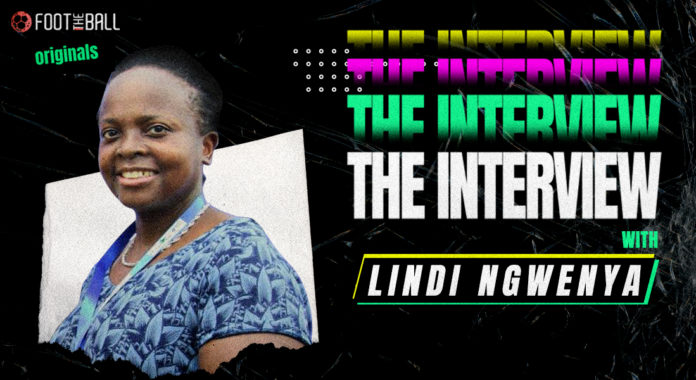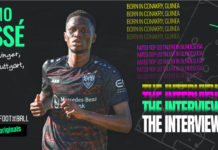“They are leeches!”.
The line above is one of the most common ones used to describe the profession of agents in football. As the football industry has commercialized, the scope for agents to make huge money from the transfer market has brought eye-rolls from the “purists”. It is a common accusation levelled against agents that they make money off of the players’ talent, far more than the profession “deserves”. Furthermore, the issues of a low barrier of entry, grey areas in terms of qualifications needed, and accusations of corruption have done a lot to sully the profession.
Also read: Conversation with Clifford Bloxham, one of the first registered agents in the UK
It is a breath of fresh air then, the story of Lindi Ngwenya. With a military background, she started working with the lesser-privileged sections of society, breaking barriers for women in a profession dominated by men. All this work is being done in her capacity as the founder of SISU Sports Management.
If the likes of Jorge Mendes (Cristiano Ronaldo’s agent) and Jonathan Barnett (Gareth Bale’s agent) represent the glamorous, and often unpopular part of being an agent, Lindi Ngwenya has expertly used her standing as an agent to become a vehicle for social mobility. Her work to bring through footballing talents from lesser privileged sections to self-sustenance has become an inspiration. Add to that her own life being an example of social mobility done right, Lindi Ngwenya is a shining example in the muddy world of football agents.
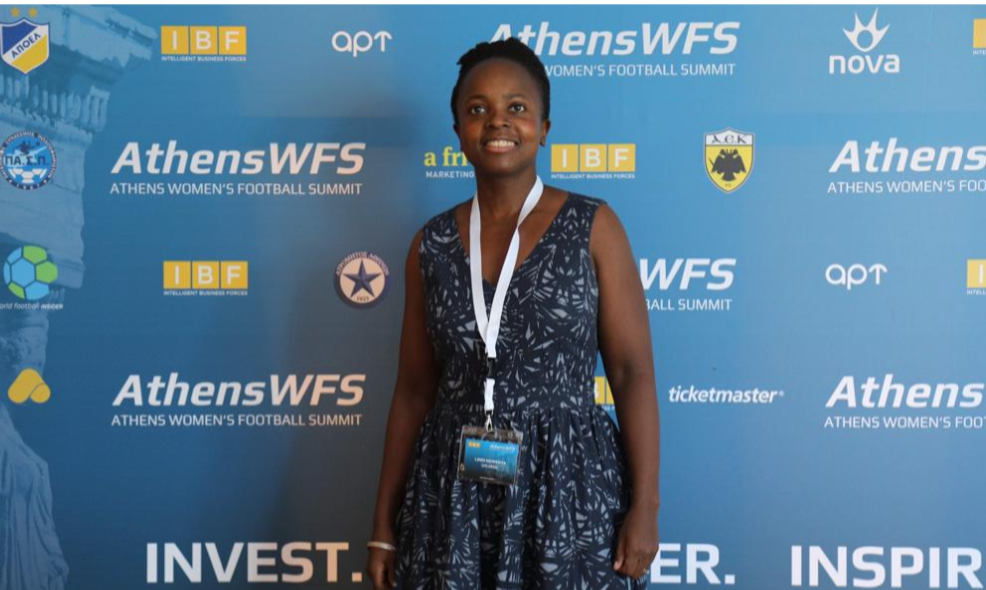
Lindi Ngwenya sat with FootTheBall for an exclusive interview to talk about her journey so far, what drives her and her hopes for a more inclusive “Beautiful Game” in the near future.
NOTE: This interview has been lightly edited for brevity and clarity
Lindi, so great to have you with us. Please tell us about the work you do, your motivations and how fulfilling has it been so far?
All I’ve always tried to do throughout my whole career is to open up the opportunities for the athletes I work with. I started SISU Sports Management in 2013. From its inception, it has always been about giving a platform to underserved football talents. For me, that’s largely remained unchanged. It’s been about women’s football, which has continued to grow, particularly in the last two, or three years and African football. It was always from the outset about providing opportunities and pathways for players.
I think maybe being a woman in the industry and a black woman in the industry, where it’s really kind of a male-dominated industry, my success, or my achievements have become a lot more highlighted. I have felt and noticed that there has been a real element where people have been inspired by some of the work that the agency has been doing, which is good.
How is it being an agent because you handle both the roles- Men’s and women’s football. How do the dynamics of the profession differ in these two spheres?
The main difference I would say between the men’s game to the women’s game is that because men’s football is a much more mature market, the opportunity set is much bigger. So you have to be more focused on the players you work with, and the markets you operate in.
Peek behind the scenes- How do football agents work?
On the women’s side, the talent pool is not so large. So if you have a talented player, you can get good traction on that player in a number of key markets relatively quickly. So it’s still better to be clear that way.
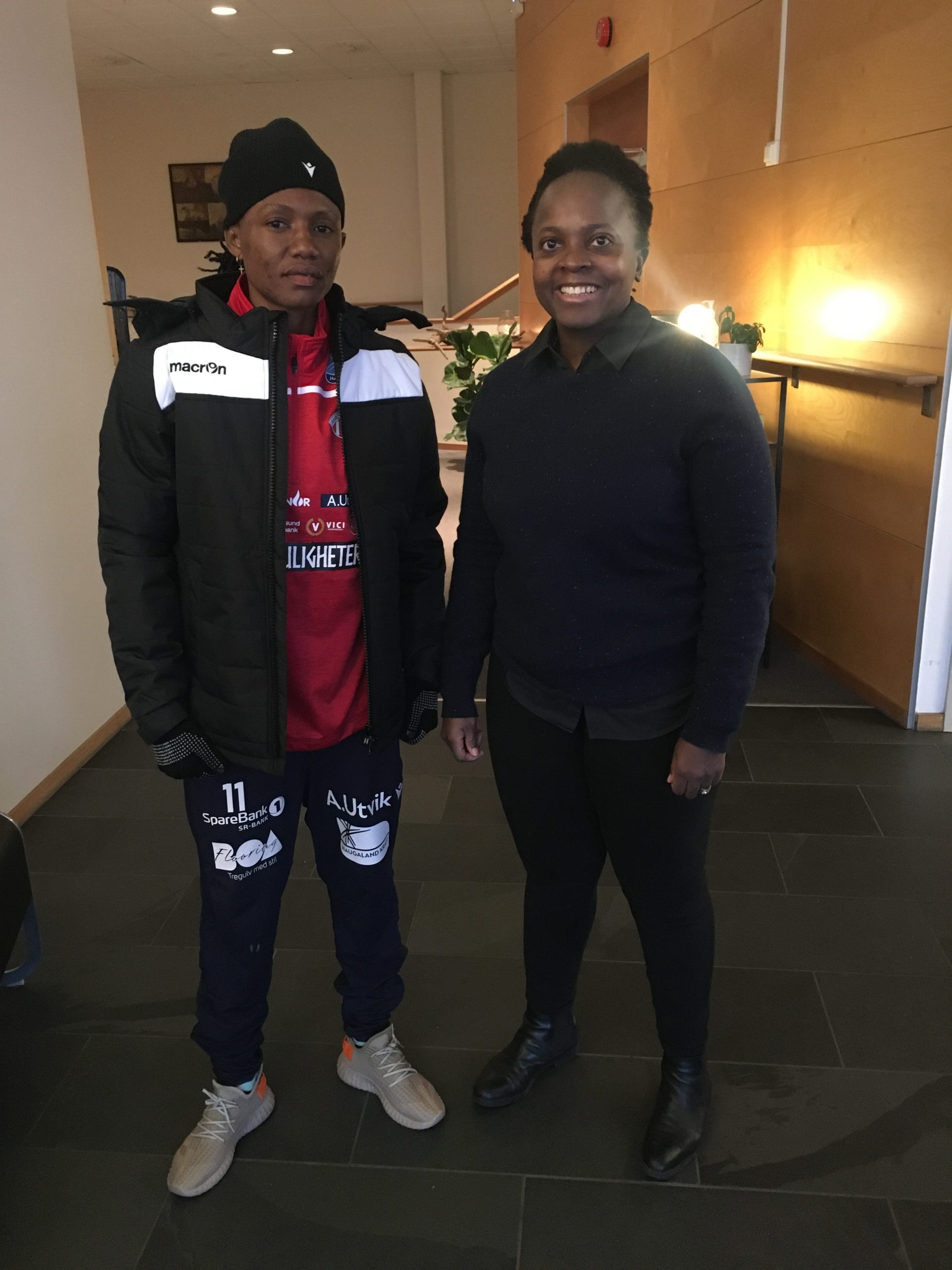
And third, there’s the way of communication. For a lot of the female players I work with, self-confidence is an area where you really have to keep bolstering it. With men, sometimes you have to talk them down a little bit because they’re maybe not quite as good or not quite as progressed as they think they are. That’s definitely about the way you talk to the players and the way you treat them.
How difficult is it to be an agent in an industry which is dominated by men?
I think the biggest thing to always have is just to come from a base of having a reasonable amount of knowledge. Once you can show competence, competence always breeds confidence.
Over the years, I have not come across too many, what could be termed, “male chauvinists”. I think you always have to jump that credibility barrier when you first meet or talk with a club, etc. Because they’ll look at you and wonder what your background is, and why are you in front of them talking about players.
Particularly in my case, I’ve never played the game. I’m not coming from a perspective and the next player who can talk from that angle. So I’ve always really tried to just use an accumulation of knowledge, always being open-minded, always trying to learn new things and staying on top of developments in the industry. That has helped in being admitted to some of these, kind of, clubs and being accepted for what I can do and bring.
How would you describe the phenomenon of social mobility because that’s essentially what you’re doing?
If I look at my own situation, I was born and brought up in, in the UK, in London, but my parents moved from Zimbabwe to the UK in order to get a better life for themselves and their children. Retrospectively, that’s a move that did help to achieve that. That’s really the same thing I’m trying to help players with who are talented, which is to give them routes where they can make a living for their talent. Honestly, it’s a bit of a double-edged sword, because, on one side, I’m sad in a way because for African players, heading to Europe is still very much the sensible route. I’d love a situation where players could stay in Africa and have a really productive and rewarding career. And ultimately, if we achieve that, I think that’s where we really want to be on the social mobility
How do you pick and choose clients you work with? And how do you balance it with being a vehicle for social mobility?
The name SISU is a Finnish word which means resilience in the face of adversity. I strongly believe that in time, the biggest determinant for the success of a particular athlete’s career is around the character piece, the resilience they have, the strength and character they have. And that’s really the first thing that we look for in players.
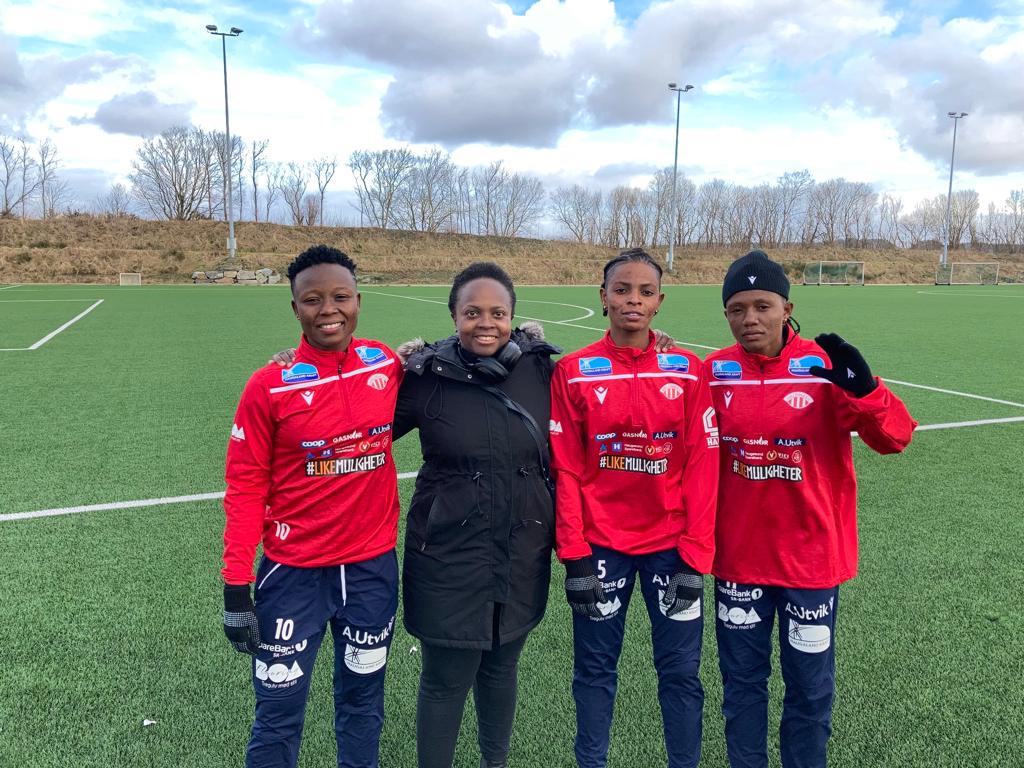
Then, it is a “talent” sport. So we do have certain parameters we look at in terms of playing. Football is getting more and more athletic. So, players who have that athletic ability, and they can combine that with the technical aspects or skill aspects of the game, are always players that are of interest to us. The last piece that it comes round to then is the willingness to learn, that’s very important. Players who have that hunger to keep developing, keep improving, keep listening and keep learning, are the ones that we try to work with.
So you have two focus areas- Women’s football and African football. They both have shown some very tangible progress in the past few years. Has that progress been as per your research and expectation? How much more do you think should be done to get it to an even higher level?
I think there’s always been an issue with African football being able to get the respect it should do in the wider football community. The most dominant competitions out there, you’ve got the Champions League, you’ve got the World Cup if you look at the participation by Confederation, the biggest participants are UEFA, so there’s always going to be a big Euro-centric lens on a lot of major competitions.
African football’s next big wonderkid: Jesus Owono from Equatorial Guinea
For the African game, there are some challenges that we still have to meet head-on. There are still member associations that do not have established national leagues, for men or women. The CAF Champions League is the flagship for the continent, which does appear to move potentially, to a Super League. We have to look at the commercial model around the continental club competition, and see how we can improve and develop it.
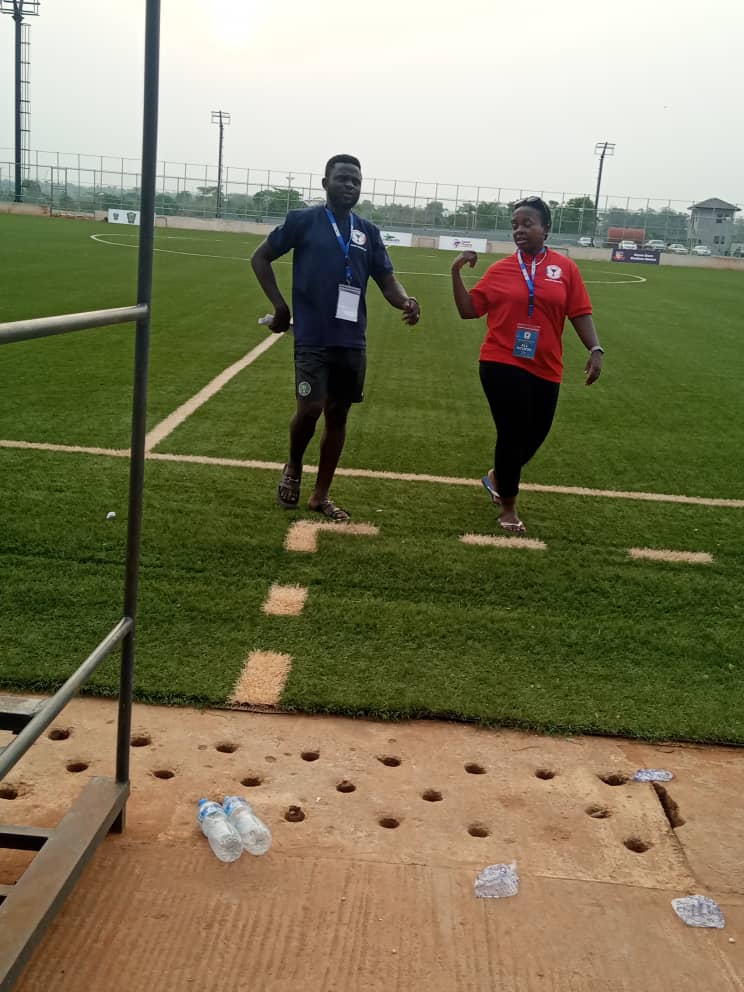
Women’s football is where I’ve got the most concerns. We’re seeing a lot of talent coming through from the African continent from the women’s side. There’s no doubt that the introduction of the women’s Champions League tournament is a huge step forward. Off the back of that, I’ve been able to progress some players’ careers after their performance in that tournament.
Must read: Women’s football’s bright future, massive viewership increase
Then again, there’s a lot of lip service being paid, if you look across the continent, to developing the women’s game. The picture around established national leagues and youth tournaments is very patchy across the continent. Without having those structures in place, it’s hard to consistently be able to A- produce the right players, and B- give those players a platform from which they can go to bigger and better things. So I really want to see a more integrated and concerted effort to develop the women’s game rather than flashes of attention around things like women’s AFCON, and the Champions League.
You talked about some people paying lip service to the women’s football game and just flashes of attention instead of a concerted effort to improve at the ground roots grassroots level. So which clubs do you think do women’s football the best?
I think Leicester definitely deserve a mention. They’re one of the few women’s teams out there that have their own training facility. The advantage that a team like Leicester have because of their own training centre for all their women’s teams is that the focus is 100%. There are no compromises around schedule clashing.
3 in a row!!@ChelseaFCW are Women's Super League Champions for the third year running.#BarclaysFAWSL #ChelseaFCW #CHAMPIIIONS #CFCW #WSL pic.twitter.com/MpzxoBK3Yo
— FootTheBall FC (@FootTheBallFC) May 8, 2022
There doesn’t need to be any kind of workaround for fitting the different teams together. Everything’s about maximizing the performance of the women’s team and ultimately, the first team. So they’ve made great strides, with a great structure.
What’s your involvement with Indian football? Who are the emerging stars you are seeing? Of course, we are headquartered out of India. So, that’s something of special interest to us.
I have been talking to a number of parties over in India, a couple of big agencies, a couple of individuals who are active in the Indian market, really to try to get a handle of what the talent pool is, and not just the existing talent pool, to understand what the structures are. At the end of the day, it’s having the structures in place. Then the right pathway will determine whether or not you’re going to see the kind of long-term and consistent production of good quality players.
Click to take a journey through the history of Indian football
For us, it’s really important to find the right country partner with the knowledge with the right kind of ethical framework to work with the players and the talent. And once we’re confident that we have that in place, then absolutely, we are definitely looking at starting to work with the emerging talent in India.
Where do you see SISU in the next five years in terms of your growth with regards to athletes and players, and off the pitch in regards to your efforts to uplift some of the lesser privileged sections of society?
You’re already seeing the beginnings of the next phase for SISU. We’ve just launched SISU Africa, which is a specific subsidiary of SISU, in Lagos, Nigeria. That’s us walking the walk in terms of having the presence in the region, We plan to build from there, across that region and across the continent of Africa.
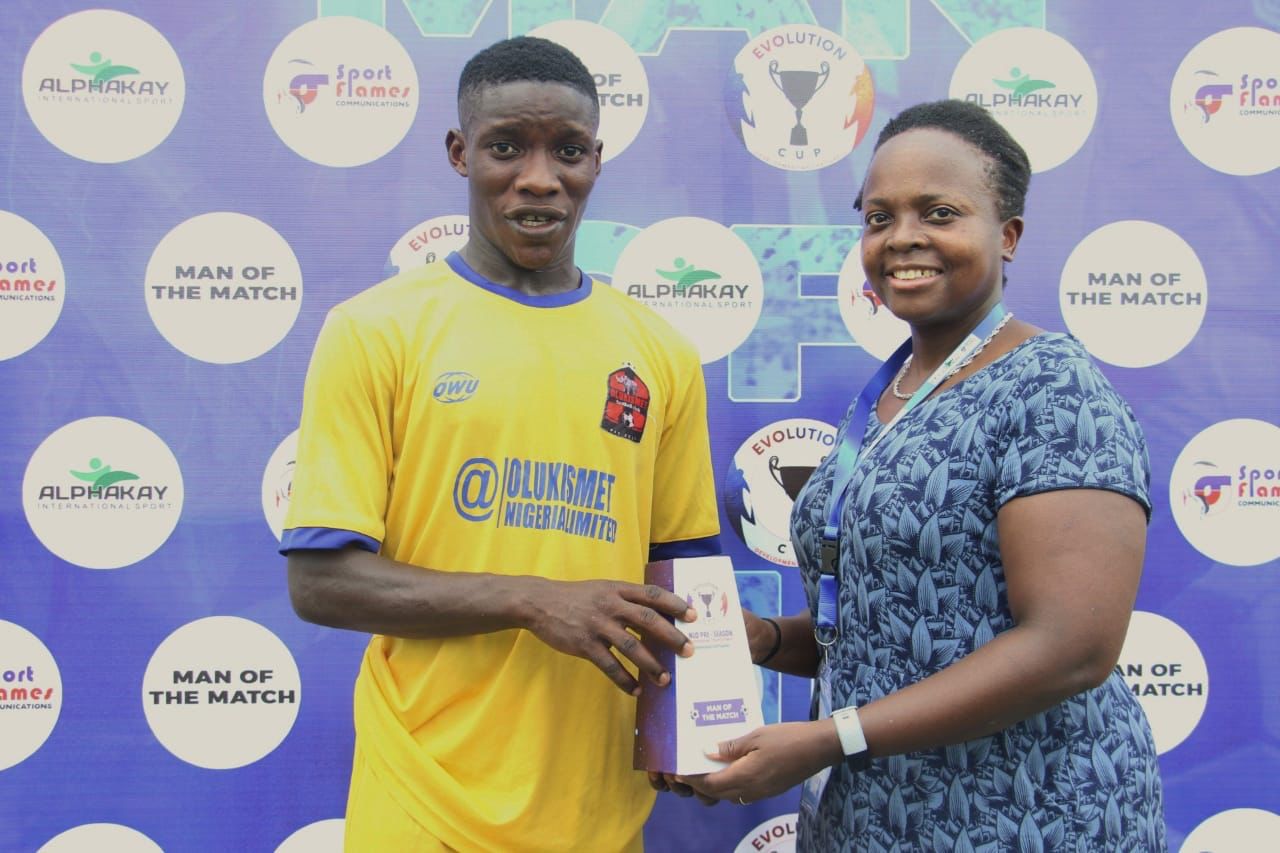
That’s really going to be the focus over the next couple of years. AFC (Asian football) territory is the area that we’re looking at more broadly. And the next step will be kind of establish a flagship there, and also in the Americas. Ideally, in the next five years, we’ll have established SISU in all major markets globally.
On that note, it was just a pleasure talking to you. Thank you so much for what you’re doing and for breaking so many glass ceilings in the world of football.

